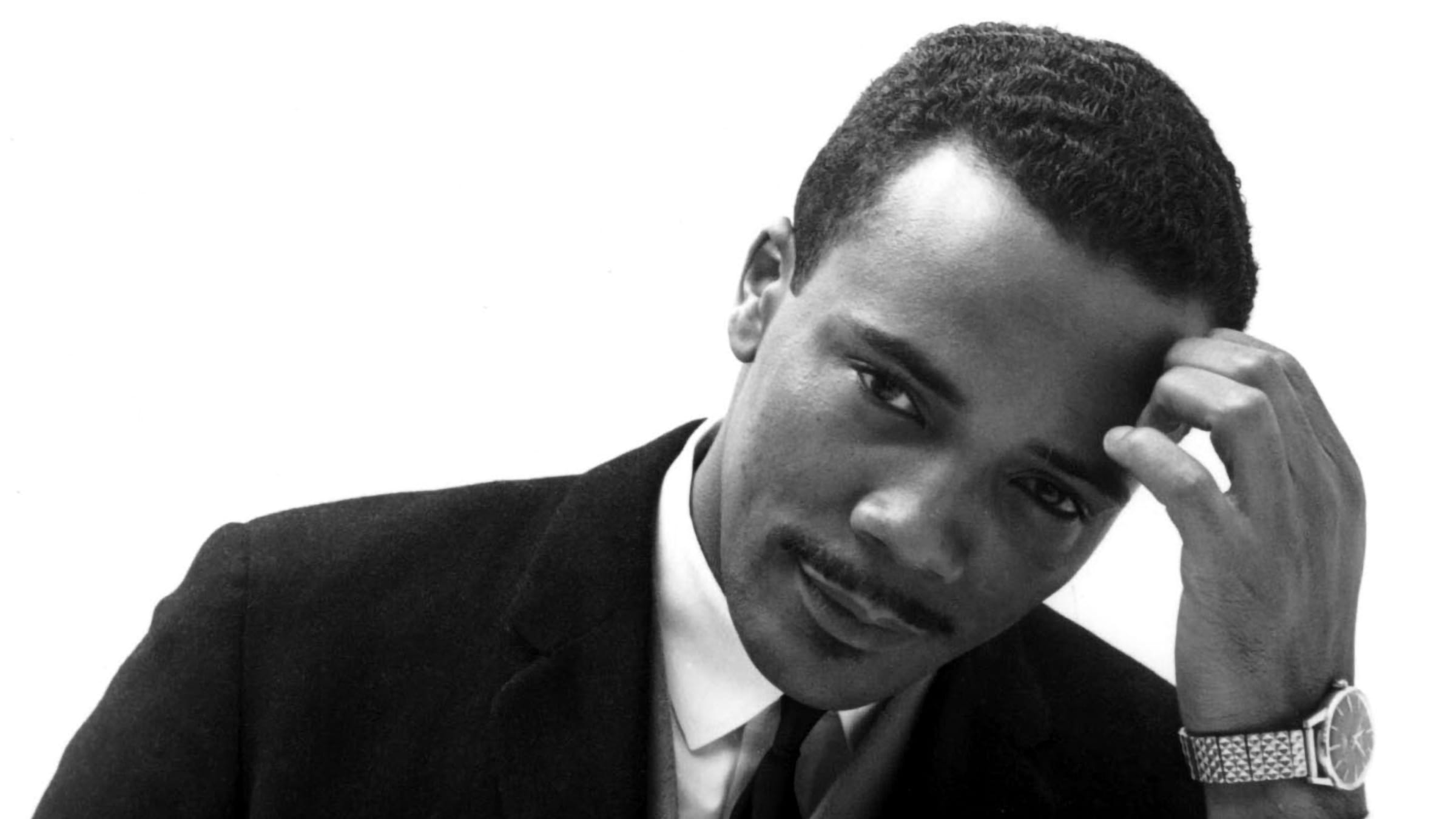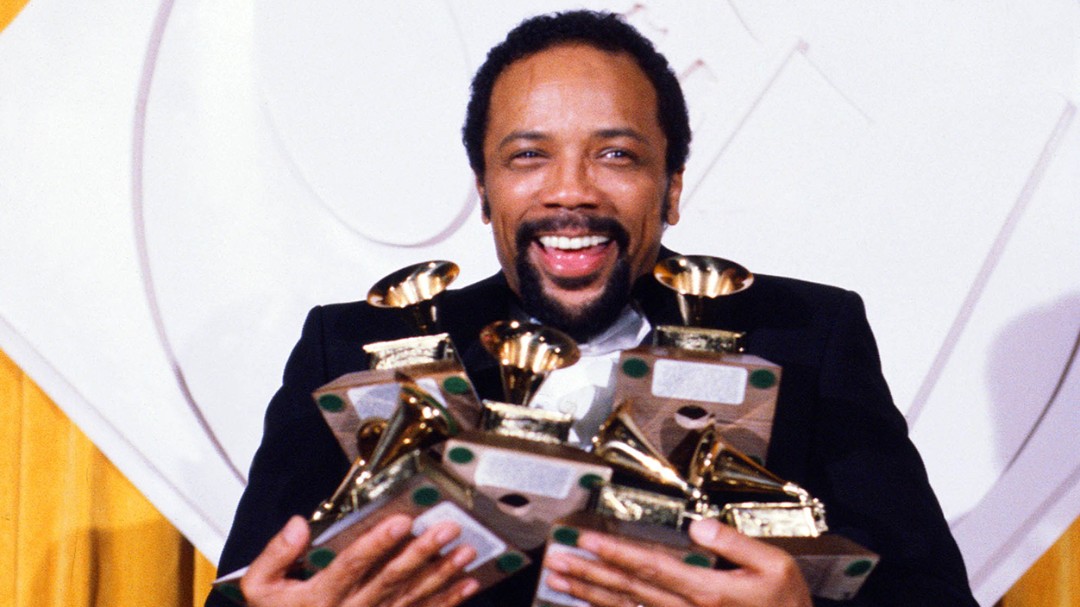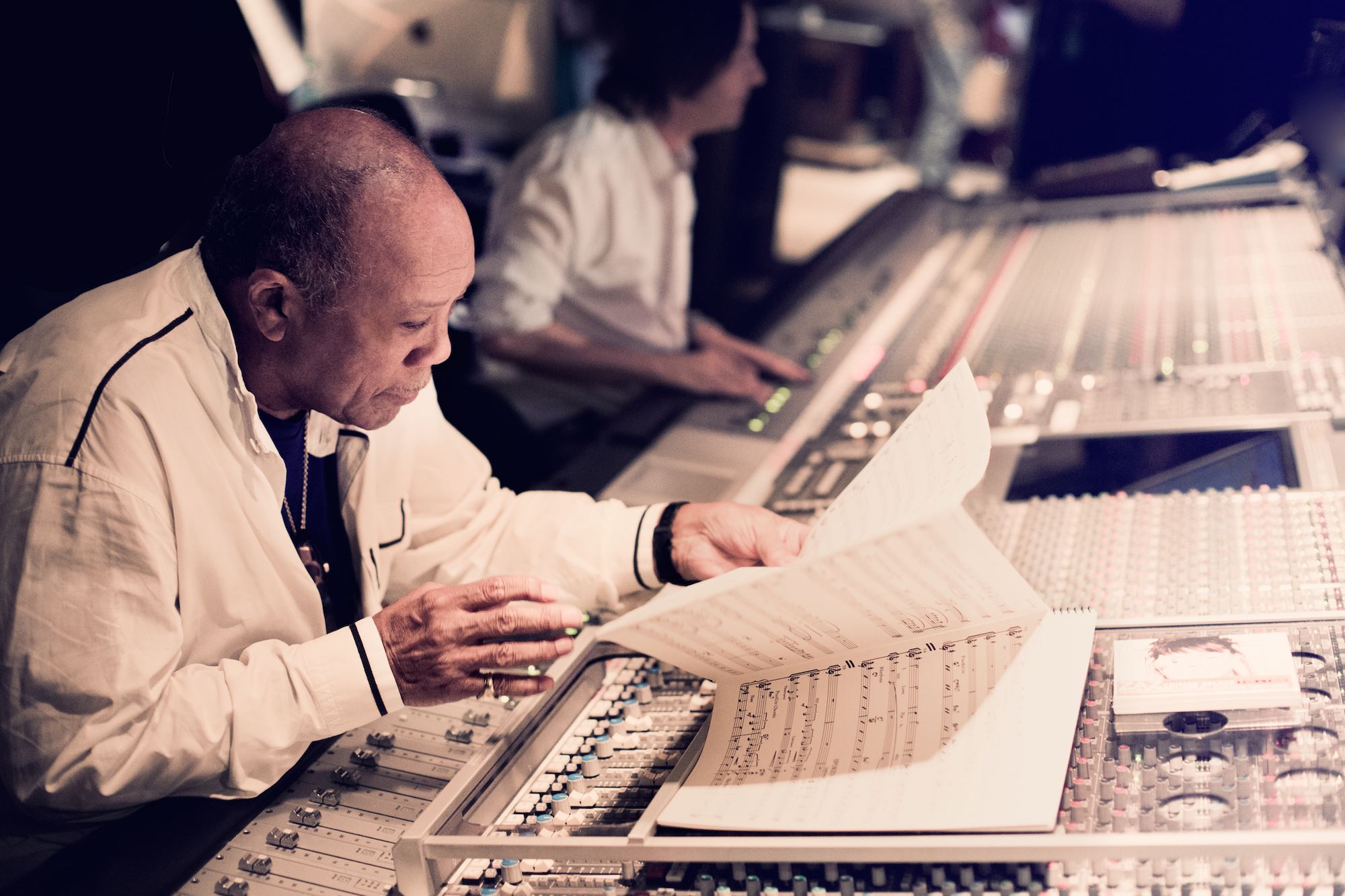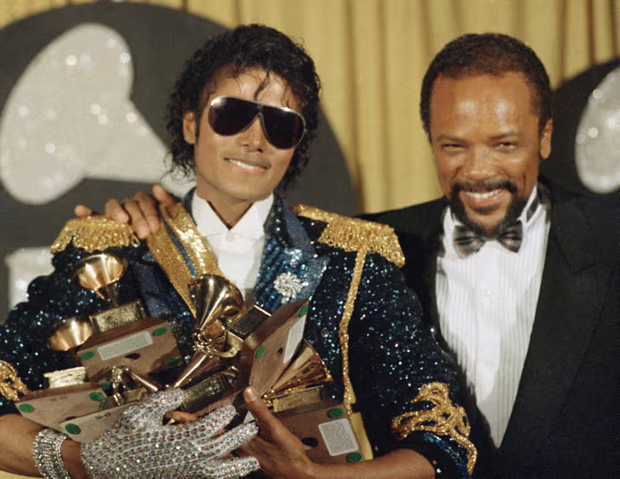
Quincy Jones, composer, arranger, and music producer, is regarded as one of the most influential figures in American pop music over the past half-century. Jones passed away at the age of 91 on Sunday, November 3, at his home in Bel Air, Los Angeles. His spokesperson, Arnold Robinson, confirmed the news of his death but refrained from disclosing the exact cause. In a statement, Jones’s family said:
“Tonight, with hearts full of sorrow and pride, we share the news of the passing of our beloved father and brother, Quincy Jones. Although this is an unbelievable loss for us, we celebrate his rich life and know that no one else can ever take his place.”
What follows is a closer look at this iconic figure and his profound impact on the world of music.
Producer of Michael Jackson’s Greatest Albums
Jones’s death was widely reported by global media outlets, as he was considered one of the most prominent cultural figures of 20th-century pop, whose influence on music was undeniable. The Guardian, among others, wrote about his life, noting that he gained much of his fame in the 1980s by producing Michael Jackson’s albums Off the Wall, Thriller, and Bad—albums that propelled Jackson to superstardom in the pop world.
He also collaborated with major artists such as Frank Sinatra, Aretha Franklin, and Donna Summer, producing remarkable works for them. Beyond pop, Jones also composed scores for many major films and achieved great success in a wide range of musical arenas. He led big bands in jazz, arranged works for top artists, and was a masterful performer on trumpet and piano.
In 1990, he founded his own film and television production company, achieving major success with series like The Fresh Prince of Bel-Air. Later, in 2017, he launched Qwest TV, a digital archive of musical performances across various styles and eras.
80 Grammy Nominations
With 80 Grammy nominations, Jones ranks third after Beyoncé and Jay-Z for most nominations in the award’s history. He won 28 Grammys, placing him among the most decorated winners of all time.
In its feature, The Guardian included tributes to Jones from notable figures. Among them was Michael Caine—who, like Jones, was born on March 14, 1933—who wrote: “Quincy, my celestial twin, was one of the greats of the music world. I was honored to know him.”
Playwright and actor Jeremy O. Harris also praised Jones’s immense contribution to American culture, writing: “He could do anything. Born in a time when a Black boy’s dreams had so many limits, Quincy taught us there are none.”

The Neighbor’s Piano and His Mother’s Voice
Jones was born in Chicago to a father descended from freed slaves. His earliest musical experiences came from the piano sounds of a neighbor and his mother’s singing. He began learning piano at age seven and moved with his father to Washington State after his parents divorced. He joined the school band in high school, learning drums and wind instruments.
By 14, he was performing in Seattle clubs with a 16-year-old Ray Charles. In 1948, he played as a sideman with Billie Holiday.
Jones studied music at Seattle University before moving to Boston and New York, where he played among jazz greats like Charlie Parker and Miles Davis. He even played trumpet in Elvis Presley’s band for the singer’s first TV appearance and conducted Davis’s final performance just two months before Davis’s death in 1991.
Jones toured Europe with Lionel Hampton and spent much of the 1950s abroad, continuing his education in Paris and meeting cultural figures like Pablo Picasso, James Baldwin, and Josephine Baker.
At 23, he toured South America and the Middle East as musical director and arranger for Dizzy Gillespie. He formed a big band for the jazz musical Free and Easy, but after the project failed in Europe, he was left nearly suicidal and $100,000 in debt.
Jones then worked as a producer and arranger at Mercury Records, gradually repaying his debts by working with Ella Fitzgerald, Dinah Washington, Peggy Lee, Sarah Vaughan, and Sammy Davis Jr.
He later transitioned into film scoring, composing music for The Italian Job, In the Heat of the Night, The Getaway, and The Color Purple, the latter of which he also produced. The Color Purple earned 11 Oscar nominations, including three for Jones himself.
In 1968, he became the first African American nominated for Best Original Song at the Oscars (for “The Eyes of Love” from Banning) and received seven Oscar nominations overall. On television, he composed music for shows such as The Bill Cosby Show, Ironside, and Roots.

Collaborations and Career Highlights
Jones’s collaboration with Frank Sinatra began in 1958, when Grace Kelly hired him to conduct and arrange music for Sinatra at a charity event in Monaco. This collaboration lasted until Sinatra’s final album, LA Is My Lady, in 1984.
Jones’s solo recording career also began in the late 1950s, producing albums as a bandleader with jazz luminaries like Charles Mingus, Art Pepper, and Freddie Hubbard.
Reflecting on his time in Seattle, Jones once said, “When people write about music, they put jazz, R&B, and pop in separate boxes. But we did it all.”
In the mid-1960s, he produced the hit “It’s My Party” by Lesley Gore and later shifted toward funk and disco, producing hits like “Give Me the Night” by George Benson and “Baby Come to Me” by Patti Austin and James Ingram. He also worked with Rufus, Chaka Khan, and the Brothers Johnson. His own funk albums Body Heat (1974) and The Dude (1981) achieved chart success.
His greatest achievement in pop was his work with Michael Jackson. Thriller remains the best-selling album of all time. Jones’s versatility on Off the Wall and Bad allowed Jackson to transition from light disco to complex funk rock. In 1985, Jones, Jackson, and Lionel Richie co-led the charity single We Are the World for Ethiopian famine relief.
In 2009, Jones said of Jackson: “Today I lost my little brother, and a part of my soul went with him.” In 2017, Jones’s legal team secured $9.4 million in unpaid royalties from Jackson’s estate, though in 2020 he was ordered to return $6.8 million.

Following the success of The Color Purple, Jones founded Quincy Jones Entertainment in 1990. His biggest TV success was producing The Fresh Prince of Bel-Air, which launched Will Smith’s career. Other productions included In the House and MadTV. He co-founded Qwest Broadcasting and Vibe magazine with Time Inc. in 1993.
Throughout his life, Jones supported numerous charities and arts organizations such as the NAACP and the American Jazz Foundation, mentoring young talents like multi-Grammy-winning Jacob Collier.
Jones faced life-threatening events twice: once in 1969, when he narrowly escaped the Charles Manson murders—he had forgotten about a dinner at Sharon Tate’s home that night—and again in 1974, surviving a brain aneurysm, which forced him to give up trumpet playing.
He married three times. His first marriage to high school sweetheart Jeri Caldwell lasted nine years and produced a daughter, Jolie. In 1967, he married Ulla Andersson and had a son and daughter. In 1974, he married actress Peggy Lipton (of The Mod Squad and Twin Peaks), with whom he had two daughters, including actress Rashida Jones. They separated in 1989.
He also had a daughter, Rachel, with dancer Carol Reynolds and another daughter, Kenya, with actress Nastassja Kinski. He had seven children in total. After his third marriage, he did not remarry but was known for relationships with younger women, including a one-year relationship with 19-year-old Egyptian designer Hiba El Awady at age 73. He also claimed to have dated Ivanka Trump and Juliette Gréco.
His autobiography was published in 2001, and his life was documented in Listen Up: The Lives of Quincy Jones (1990) and Quincy (2018), directed by his daughter Rashida Jones and Alan Hicks. In 2022, he released Notes: On Life and Creativity, a reflection on the creative process.
Artists React to Jones’s Passing
Following Quincy Jones’s passing, many musicians and artists shared heartfelt messages on their official pages. This legendary figure, who deeply impacted the worlds of music and entertainment, not only inspired generations of artists but left behind an unmatched legacy of creativity and innovation.
Stevie Wonder, the renowned singer-songwriter and longtime collaborator, wrote:
“The world mourns and simultaneously celebrates the life and incomparable legacy of Quincy Jones—a visionary whose genius forever transformed music and entertainment. Our sincerest condolences go to his children, family, friends, and fans. Rest in peace! We’ll miss you.”
Celine Dion also wrote:
“With a broken heart, I learned of the passing of my dear friend, the one and only musical genius, Quincy Jones. Not only did I admire him as a cherished mentor, but also for the profound influence he had on nearly every form of American music. Working with him was like a dream come true. His musical intuition was astonishing. He helped me record ‘a little piece of heaven.’ Quincy always knew exactly what each piece of music needed.
Beyond his kindness and endless achievements, I admired his humanitarian work dedicated to the arts, global hunger relief, and supporting underprivileged youth. His accomplishments reached every corner of the world.
Quincy once said, ‘Music is the soul of the world and connects us on a level that words alone cannot reach.’ May his wisdom and joy forever remain with us.”
British singer and composer Jacob Collier, whose career was greatly influenced by Jones, also wrote:
Here’s the English translation of the text:
“In the humble beginning of my journey, before the albums ‘Djesse’ and ‘In My Room,’ and even before stepping onto the stage, Quincy saw a spark in me and took me under his wing. He lifted me up and gave me the courage to believe in myself and walk any path I wanted, freely, in a way that changed my life forever. Like the greatest heroes, the deepest lessons he taught me were those he showed me by example. He never told me what to do, nor did he impose anything on my creative process or vision; rather, he encouraged me to create what I wanted, without rush and exactly in the way that felt right for me. His gentle presence in my life opened many unimaginable doors, but none more important than the one he opened in my heart as a true believer. I deeply miss him; he was the most fascinating ‘grandfather’ figure on Earth, with that mischievous wink, crooked finger, and his incredible stories about Picasso, Stravinsky, Sinatra, Charlie Bird, Nadia Boulanger, and countless other tales. His endless kindness, unconditional support, and love, alongside his immeasurable musical wealth, are things we can all enjoy forever.”
This young singer ended their message about Jones with one final sentence:
“You will be present in every note I play. We will be forever indebted to you. I love you.”
Sources:
1- The Guardian
2- Encyclopedia Britannica
3- The personal pages of the artists quoted in the report.